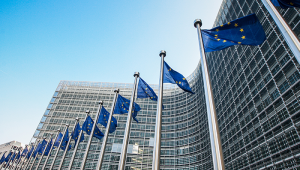By Vivienne Russell | 2 December 2014
The Ebola epidemic is demanding additional government spending of $500m, while the disease has also led to some public investment being suspended and is likely to push west African economies into recession, the World Bank has warned.
According to its latest analysis of the disease’s economic and fiscal impacts, the bank sharply revised down growth estimates for Sierra Leone, Guinea and Liberia for this year. Its update on the economic and fiscal consequences of Ebola concludes both Sierra Leone and Guinea were now likely to go into recession next year.
The total fiscal impact is more than half a billion dollars this year alone, imposing additional budget needs of more than 6.0% of GDP in Liberia, over 3.0% in Guinea and above 2.5% in Sierra Leone.
More than $160m of public investments, such as Liberia’s Mount Coffee hydroelectric plant, have been put on hold because of an absence of foreign contractors, hitting future growth prospects.
World Bank president Jim Yong Kim said: ‘This report reinforces why zero Ebola cases must be our goal. While there are signs of progress, as long as the epidemic continues, the human and economic impact will only grow more devastating.’
Marcelo Giugale, senior director of the macroeconomics and fiscal management global practice at the bank, added: ‘The key to avoiding the higher scale of economic impact is not only to eradicate the existing epidemic, but also to invest in preparedness in neighbouring countries.
‘A full-fledged recovery effort could help the affected countries improve on growth estimates, and return to building their economies and reducing poverty.’
According to the World Bank, growth in Sierra Leone is now expected to be 4.0% this year, down from a pre-Ebola prediction of 11.3% forecast in June and the 2.5% predicted in October.
In Guinea growth is predicted at 0.5%, down from 4.5% forecast in June and 2.4% forecast in October.
In Liberia, growth is now expected to hit 2.2%, down from the 4.5% expected before Ebola and 2.4% predicted in October.
The economic outlook for next year is equally gloomy. In Guinea, the economy is expected to contract by 0.2% in 2015. This is down from predicted growth of 2.0% in October and 4.3% in June before the Ebola outbreak took hold.
Expectations are worse in Sierra Leone. The World Bank slashed its prediction of 7.7% in October to -2.0% today. This is down from a pre-Ebola forecast of 6.8%.
But forecasts are slightly better for Liberia where the epidemic has been better controlled. The 2015 growth forecast was revised up to 3.0% from 1.0% in October. But this was still well down on the 6.8% growth the World Bank was forecasting in June.
Kim began a two-day visit to West Africa today and reaffirmed the bank’s continued support. Almost $1bn in World Bank funds has been mobilised to help the three hardest-hit countries. This includes $518m for the emergency response and at least $450m from the International Finance Corporation, the bank’s private sector arm.
The United Nations' has acknowledged it has missed its December 1 target of ensuring 70% of Ebola cases are under treatment and 70% of bodies safely buried.













